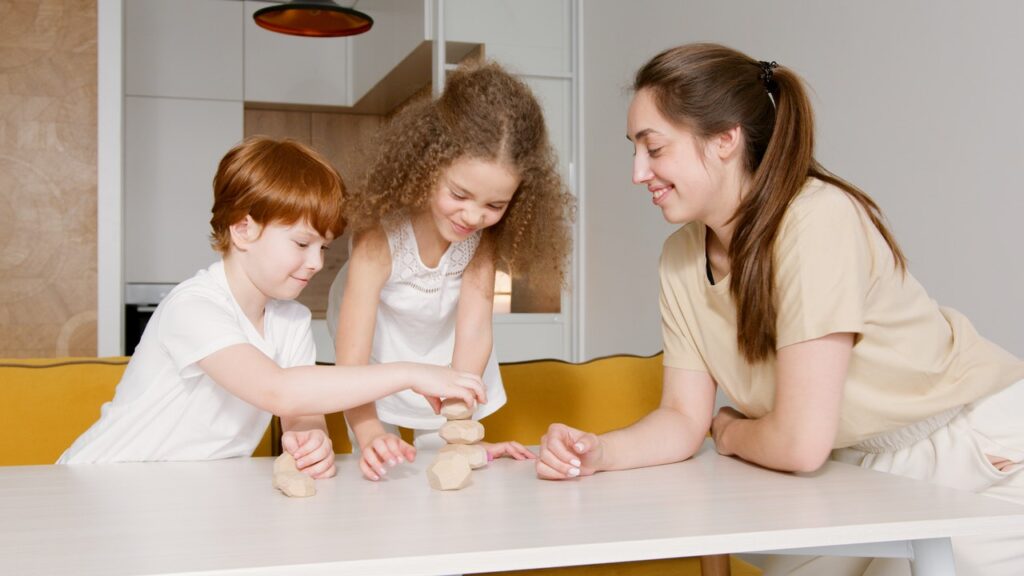How and Why Teach Kids Patience

Patience is a rare quality in many adults, let alone children. We always resent waiting for a train and get angry when a cup of coffee isn’t ready for more than 2 minutes. Children can throw tantrums as well if they want something immediately or if their parents punish them. Kids’ breakdowns, in turn, often provoke impatient parents to be cruel and unfair. Subsequently, everybody gets nervous and feels offended and unhappy. I’m sure it’s common for many families with young children. But to be relaxed we need to be patient and teach our kids to do so.
A Patient Child. Is It Possible?
The new generation of children has more self-control than their peers 50 years ago. Participants of the famous marshmallow test have been performing better and better every year since the 1960s, proving the above. Researchers attribute it to the amount of attention kids receive now and a half-century ago. It turns out that the more parents are engaged, the stronger emotional intelligence their children have.
As you can see, kids can control themselves, developing their willpower. Of course, they cannot act like adults and wait months for candy. But they are quite capable of developing patience skills. There are many tools for it such as group games to test patience. One more option is to practice emotional self-regulation.
The tricky thing here is that parents should be uncomplaining themselves to be able to help. Well, why not learn how to teach patience to kids right now?
Why Is Patience Important for Kids` Well-being?
Terrie Moffitt, a professor, and clinical psychologist, conducts ongoing research investigating the level of self-control in more than a thousand people born at the beginning of the 1970s. Dr. Moffitt and her team have been observing them from infancy till now when they are almost 50. The results are exciting, shedding a light on the importance of patience for kids.
- Participants who had low patience results in childhood have serious health problems now, compared to others.
- 38-year-old adults that had higher self-control skills as a kid turned out to be a year younger in terms of biomarkers. Those who had difficulties with patience, on the contrary, were reported to be a year older. And the difference is expected to be bigger as they get older.
- The young people who scored less on self-control as a child were more likely to become alcohol-addicted or drop out of university. They also tend to work in low-paid jobs that require minimal skills.
- Kids who used to play games that teach patience and, thus, were more self-disciplined, report a higher level of life satisfaction.
Now you see how it influences one’s whole life. If you don’t know how to explain patience to a child, start with games and activities. As long as it helps to deal with such strong emotions as anger or jealousy, it`ll develop patience too.

The Most Exciting Teaching Patience Activities
Waiting Challenge
Take a kitchen timer and put it on a table in front of the children. Ask them to sit quietly and don`t move for 3 minutes. The winners get a treat. If 3 minutes aren’t a problem for them, add extra minutes.
Play Chess
In this game, only the brain works intensively. Quite a challenge for restless children. Yet, the best way to motivate them is to be an example yourself and surrender from time to time to keep kids` interest.
Spoon and Egg Race
You need at least two participants. Put an egg on a spoon and try to carry it to the finish line. The fastest one wins the race. The game requires a lot of patience and eggs because the chances of them crashing are very high. By the way, one needs to breathe properly to concentrate. Plus, correct breathing is helpful not only for this particular game but for calming down in general.
Take up Gardening
Growing a plant takes time, making it a perfect activity that requires persistence. Parents should know how to be patient with kids, encouraging them to wait until a seed breaks through the soil. Then, children have to observe for quite a long time how the sprout becomes taller and healthier. What a perfect activity to teach patience! One more similar indoor challenge is to grow a lemon tree from seed.
Read Aloud
Gather kids together and read books aloud. They can also participate, taking turns and reading several lines. Thus, they learn to concentrate and sit still for a long time.
Do Puzzles
Puzzles are very engaging. Still, one needs to be disciplined and persistent enough to see it to the end. Putting the pieces together alone may be boring, but if the whole family joins a kid, it might be much funnier. Gradually increase the number of pieces when kids become proficient in it.
Build a Model
There are models of vehicles, people, buildings, etc. To succeed, a child needs to read instructions carefully, stick to them and be ready to accept failures. He may need to rebuild it or start from scratch once again. But it only exercises his patience. Plus, it develops intelligence and improves motor skills. Lego bricks are also a good choice.
The Memory Game
Prepare cards with objects familiar to kids. Look at them for 15 seconds and then flip over. Take turns, taking a card and guessing what is on it. This game is very useful for boosting mental skills.
Hide and Seek
Almost all love this game. Children should sit still while hiding. Yet, they also have a chance to run enough and reveal logical thinking skills.
Pass the Package
Wrap an object in several layers of wrapping paper. Kids have to take turns unwrapping only a layer each time. Thus, they should wait and deal with impatience, waiting for their turn.
How to Be Patient with Kids?
Half of the success depends on how parents can control their emotions. Kids may reject the activities you offer to them or give up in the middle of the game. Furthermore, they might not be patient enough to follow the rules. How not to lose your temper when dealing with such difficulties? Here are some bonus tips for parents.
- If-then technique. Kids always demand some trifles when we are in the middle of an utterly important business. If so, tell them something like: If you wait 5 minutes, I`ll help you. In such a way, you make it clear how long they should wait. And, at the same time, you pay attention to their needs and show your consideration. Never ignore their requests.
- Discover your triggers. To teach patience to your child, you need to be patient yourself. Reveal what drives you crazy and create a plan to avoid such situations. Take, for example, the morning rush before going to school. To have more time, iron the clothing the evening before and make a kid pack his bag in the evenings too. Thus, you will have more time and be more patient.
- Practise mindfulness. There are many ways to do it. As an option, you may choose the one which allows children to take part too. Try some meditation and ask your kid to join you. It’s OK if he refuses. Maybe, he`ll find it interesting later, seeing how you enjoy it.
- Set reasonable and age-appropriate expectations. Don’t forget that there`s such a big age gap between you and your child. He might be unable to stick to your plans mentally and physically.
Conclusion
Now that you know how patience is essential for kids, find time to cultivate it. Begin with yourself. Become an example for your children, and they’ll look up to you. Only a patient person can teach patience. Well, you have a lot to do, but I’m sure you’ll succeed.
More articles

A Teacher And Mom’s Perspective On Growing Emotional Intelligence In Children
Have you ever asked yourself, “How do I help my child understand their feelings and handle them in a healthy way?” If yes, you’re not alone. As a teacher and a mom, I’ve heard this question from parents in school meetings, in casual chats, and even during pick-up time. The good news is, emotional intelligence […]

Core Values for Kids: Teaching Character, Responsibility & Kindness
Helping children understand who they are and what matters to them is an essential part of emotional and social development. One of the most effective ways to build character is by teaching core values early. Whether you’re a parent, teacher, or counselor, having a list of values for kids or a list of core values […]

When Do Kids Start Reading? A Parent’s Guide to Early Literacy and Chapter Books
One of the most common questions parents ask is “When do kids start reading?” Understanding reading milestones can help you support your child’s literacy journey with confidence and patience. While every child develops at their own pace, research shows predictable stages of reading growth. From recognizing letters to reading their first chapter book, this guide […]



